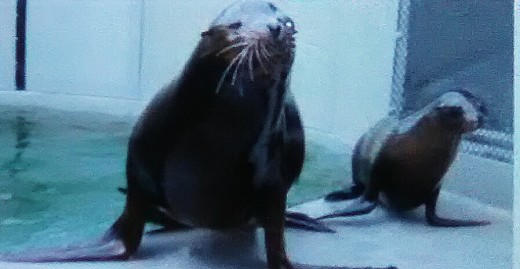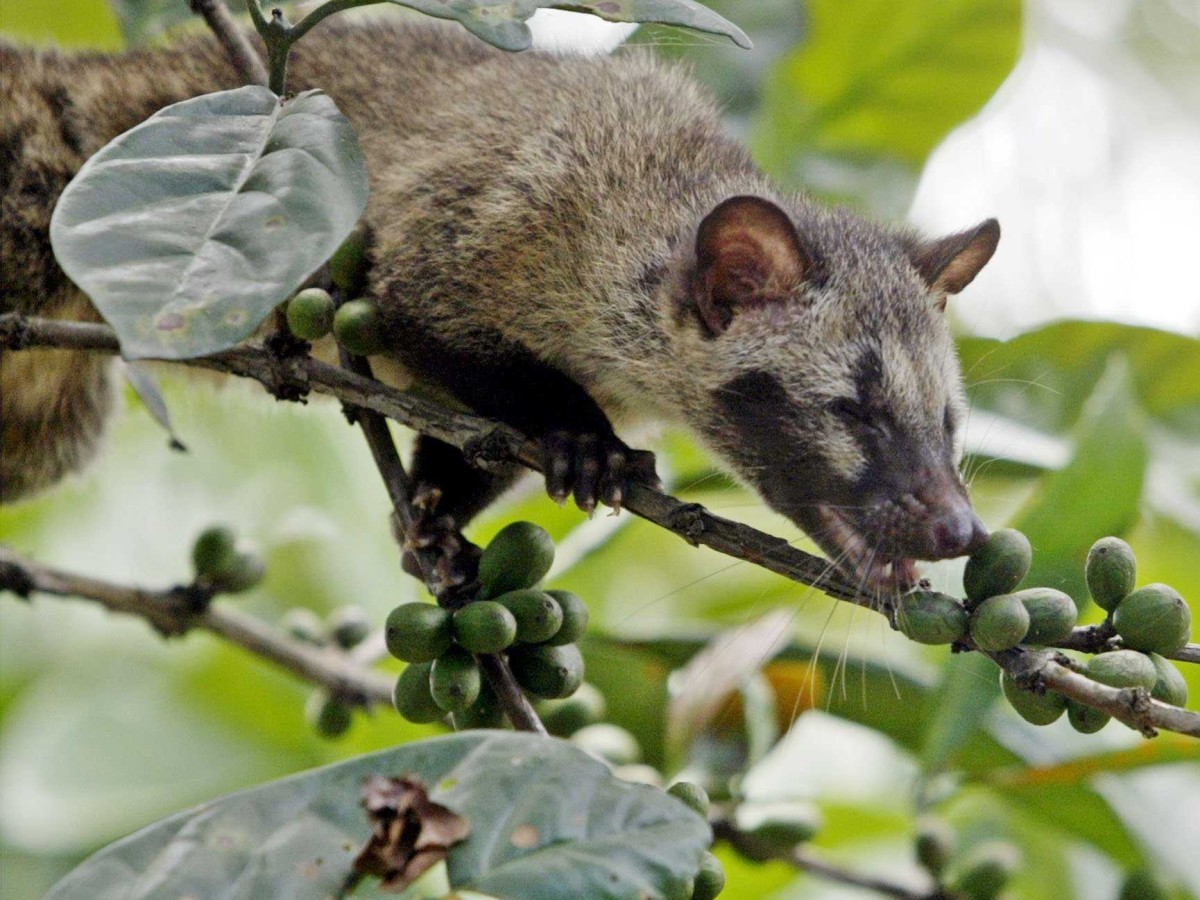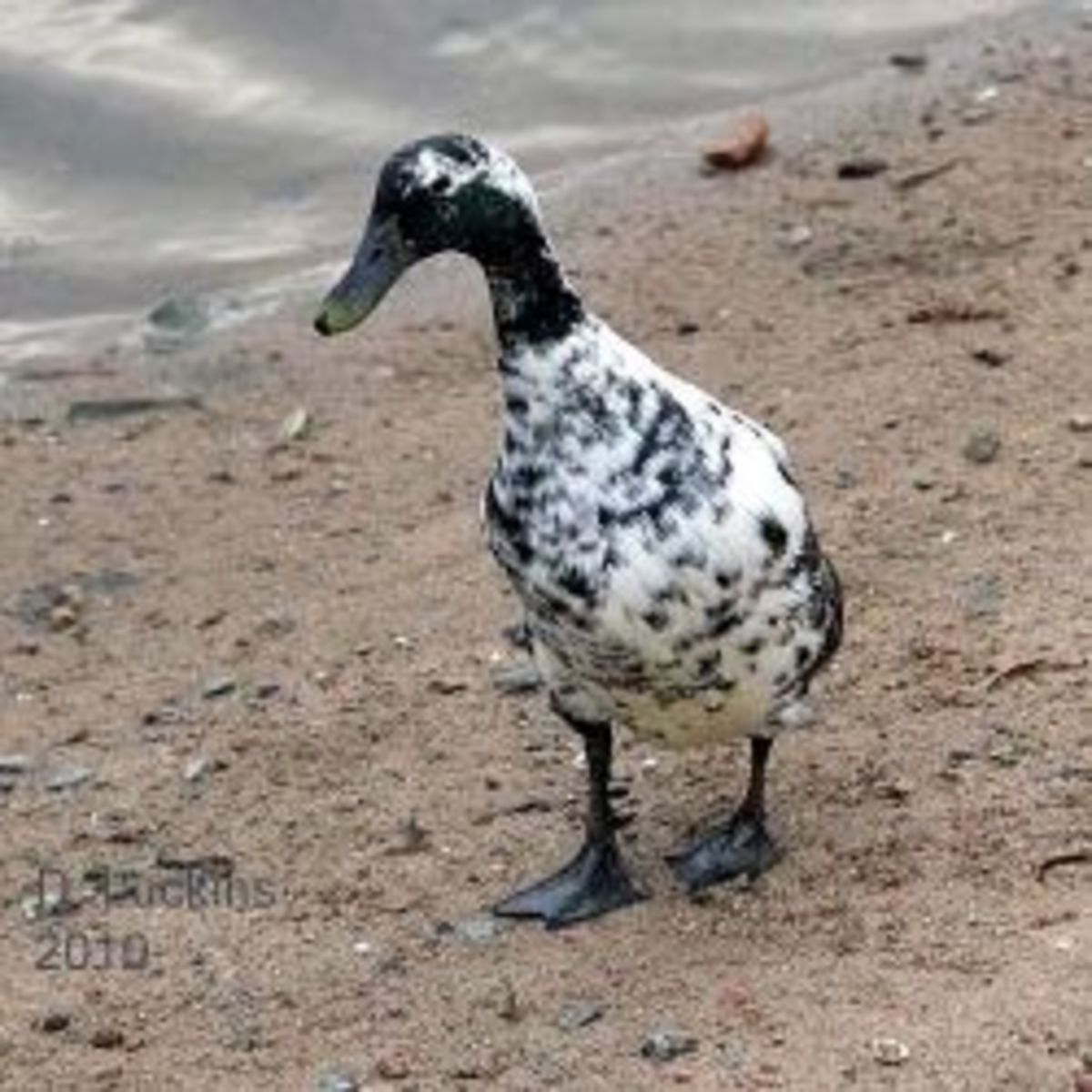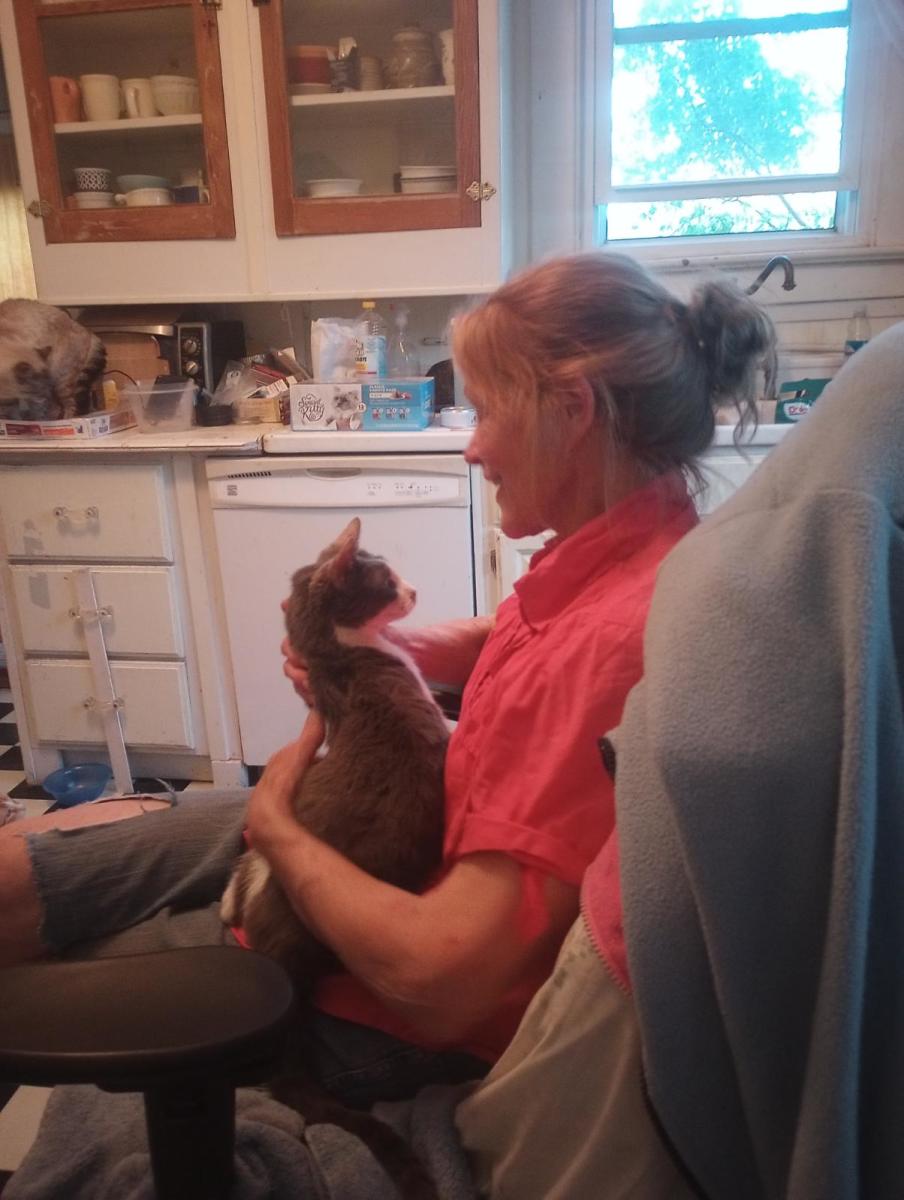Marine Mammal Center Provides Updates On Abused California Sea Lions
Too Cute For Words "Silent Knight"
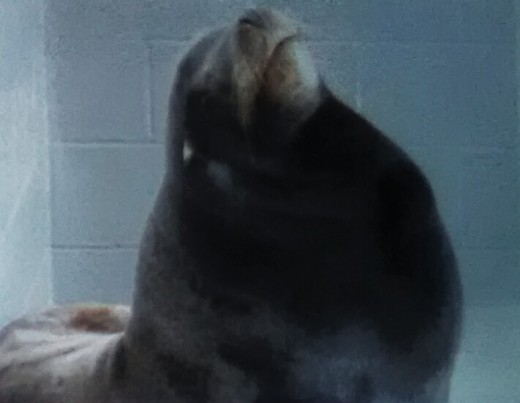
Updates On "Silent Knight" and Other Rescued California Sea Lions
Although the California sea lions who are rescued by the Marine Mammal Center's caring staff are amongst life's most unbearably adorable specimens, there is one in particular who especially captured my heart.
"Silent Knight," a male sea lion who suffered unspeakable violence at the hands of apparent human sadists, was rescued and cared for by MMC, and now appears to be thriving, according to Giancarlo Rulli, Marketing and Communications Associate at the Marine Mammal Center of Sausalito, California.
Rulli reports that Silent Knight, so named for his regal demeanor, was the victim of gunshot wounds to the face and left for dead. The attack left the sea lion permanently blinded and unable to survive alone in the wild.
The incident occurred in December, 2010, when Silent Knight was found injured on a beach in Sausalito; he was later rescued and then treated by the Center's volunteers.
"He had at least 5 buckshot fragments in his head and damage to his mouth and jaw," MMC states. "Our veterinarians provided the critical care he needed to recover from his life-threatening injuries, but his devastating wounds left him blind. Once healthy, he was sent to the San Francisco Zoo, where he acts as an educational ambassador, carrying the message to treat all creatures kindly."
Silent Knight and Henry
The MMC currently reports that Silent Knight and his friend "Henry," another California sea lion who had been blinded by human violence, are now both at the SF Zoo and now both appear to be happy and thriving. The zoo's $125,000 sea lion exhibit includes an 85,000 gallon pool.
"Members of the press, as well as supporters from the Center and the zoo, watched as Henry swam circles around Silent Knight who was resting on one of the 'islands,'" MMC states. "Later, both sea lions were called over to the feeding area where animal care experts from both organizations demonstrated 'target training' which allows zookeepers to communicate with the animals through verbal commands by rewards of fish."
Henry was brought to the Center by way of the North Coast Marine Mammal Center in Crescent City, California. The Center nurtured both Silent Knight and Henry back into health, until they were both strong enough to transfer to a new facility. "The Center and the San Francisco Zoo have enjoyed a collaborative partnership for many years," MMC reports.
Negative Human Interaction With Marine Mammals
When asked about what the public could possibly do to contribute to the intervention of horrific abuse frequently caused by humans to marine mammals, Rulli quoted, "As the world's largest marine mammal hospital of its kind, the MMC inspires ocean conservation through marine mammal rescue and rehabilitation, scientific research and education. While each patient undergoing rehabilitation gets individualized care, the Center is also dedicated to understanding the threats that these animals are facing in the ocean on a larger scale. California sea lions are very sensitive to their environment and thus are a sentinel species, alerting us to major changes in the ocean based on whether they are struggling or thriving.
"Ocean trash impacts about 10% of the patients that we see here at the Center," Rulli continues. "Deadly entanglements are a huge problem for the animals on California's coastlines, and the Center depends on the public for support in helping to minimize the impact of ocean trash on marine mammals.
"In 2017, the Center responded to approximately 60 seals and sea lions suffering from negative human interaction," Rulli said. "Negative human interaction is defined by the Center as: entanglement in ocean debris; oil/tar contamination; patients with gunshots/human-induced trauma; and maternal separation due to illegal pick-ups or harassment."
Rulli reports that the U.S. Marine Mammal Protection Act (MMPA) protects all marine mammals, including cetaceans, (whales, dolphins, and porpoises), pinnipeds, (seals and sea lions), sirenians, (manatees and dugongs), sea otters, and polar bears within the waters of the United States. "This means people may not harass, feed, hunt, capture, collect or kill any marine mammal or part of a marine mammal," Rulli says.
Rulli notes that the MMPA also formalized the marine mammal health and stranding response program at www.marinemammalcenter.org/what-we-do/rescue/our-rescue-stranding-network.html to improve the response of stranding and unusual mortality events. The National Oceanic Atmospheric Administration (NOAA) website gives the complete text of the MMPA at https:www.fisheries.noaa.gov/topic/laws-policies#marine-mammal-protection-act.
Updates On Current Patients
"'Brielle,' a juvenile male sea lion rescued recently by the Center's trained volunteers in Sonoma County, is currently being treated for malnutrition and leptospirosis [a potentially deadly bacterial infection that attacks the kidneys] in Sausalito," Rulli says. "The young sea lion is currently receiving antibiotic injections and recently began to eat daily feeds of herring on his own.
"'Blue Arrow' and 'Susanoo', two male California sea lions rescued last week in Sonoma and Monterey County, sadly passed away despite the best efforts of the Center's veterinary staff," Rulli continues. "During a post-mortem exam, Blue Arrow, a 4-5-year-old subadult, scientists discovered a lacerated liver and kidney blood clot associated with an unknown type of trauma. Tissue samples were sent for further analysis. Susanoo passed away due to severe malnutrition and pneumonia. While unfortunate, every animal that dies at the MMC gets a full post-mortem exam and the information gathered not only helps to improve treatments for future marine mammal patients, but also deepens our understanding of marine mammal disease and environmental threats. The Center collaborates with dozens of institutions worldwide to share knowledge about the relationship between marine mammal health and human health like cancers, algal blooms, neurological disease and infectious disease."
How the Public Can Help
Rulli states that the MMC is a non-profit organization and depends on donations from members of the public to respond to and care for marine mammals in need.
"Visit MarineMammalCenter.org/donate," Rulli says, "to help fund the Center's life-saving work, including:
- Innovative rescue tools to capture wild, entangled animals using advanced sedation, tracking and rescue techniques.
- The ability to perform complicated surgeries to repair injuries caused by entanglements and gunshot wounds.
- Train veterinarians and animal experts from countries developing rehabilitation and conservation programs so they can rescue entangled animals on their own coastlines.
- Report sick and injured marine mammals to the MMC by calling 415-289-SEAL (7325).
- A great way to connect with the ocean is through the food you eat. The next time you're out shopping or at a restaurant, ask your servers and fish sellers who caught your fish, where and how. When in doubt, refer to the Monterey Bay Aquarium Seafood Watch guidelines at www.seafood.org.
- Readers can help current patients like Brielle by adopting one of our past patients through the Center's Adopt-a-Seal program. Readers at Hubpages.com who Adopt-a-Seal get a beautiful Certificate of Adoption (printed or downloadable for last minute gifts) as well as a card that shares the story of a patient that would not have survived in the wild if it hadn't been rescued by the Center. The adoption fee allows us to purchase things like sustainably-caught seafood for our patients, or life-saving veterinary equipment. Adoptions start at a modest $30, and there are options to add on extras like a stuffed animal or book. To learn more, visit http://www.marinemammalcenter.org/Get-Involved/adopt-a-seal/."
On December 30, 2010, Silent Knight Receives Fan Mail
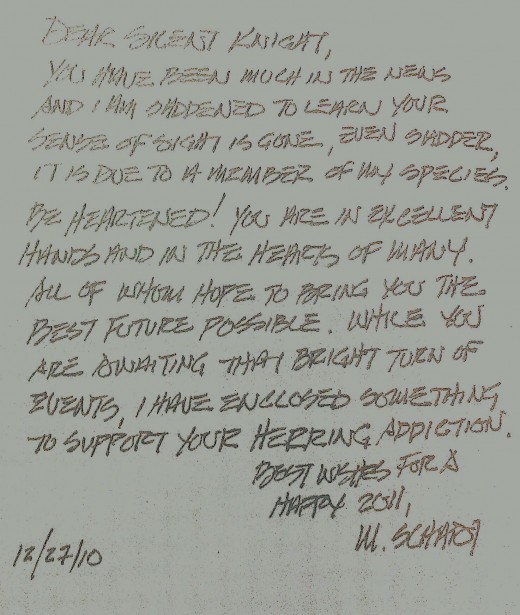
Silent Knight and His Buddy "Henry", Also Blinded By Human Cruelty, are Doing Well
